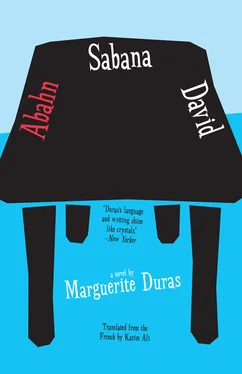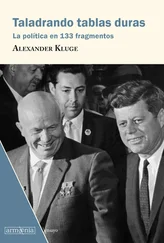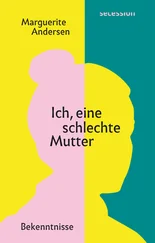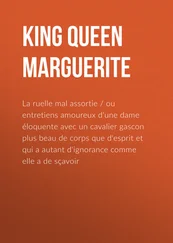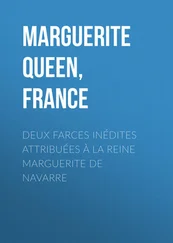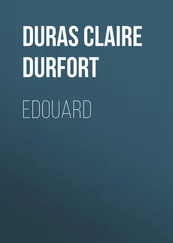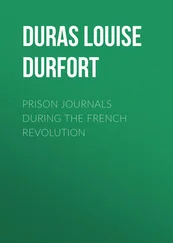He thinks again.
“About despair,” says David. He seems confused, intimidated. He smiles. “Then I slept.”
They are silent. Abahn gestures toward the Jew.
“He’s unsure now. That’s what I think.”
David thinks.
“It’s completely normal for Gringo to kill him.”
“Normal,” says Abahn.
David lowers his voice a little:
“He’s Gringo’s enemy.”
“He’s a different kind of man,” says Abahn. “He’s a communist who believes that communism is impossible. And Gringo thinks it is.”
David smiles as if at a joke. He hesitates.
“Yes, definitely,” he says.
“Which?” Abahn asks.
David stops smiling. He looks toward Sabana. He wants her help. She is silent.
“You don’t know,” says Abahn. “We don’t know.”
They are silent. Again Abahn gestures toward the Jew:
“He doesn’t think it’s worth the trouble to kill Gringo.”
“He thinks Gringo is dead,” says Sabana.
“What? How?” cries David.
No one answers him.
“It’s completely normal that Gringo would kill him,” says David again, his voice trembling.
“Yes. Gringo,” says Sabana.
David stares at Sabana in terror, seized by brutal shock.
He waits. Sabana says no more. His terror grows.
“The life of the Jew is unseeable, invisible.” says Abahn. “Like the life of David.”
His terror grows still. Silence falls.
“Before, the Jew was so sure. Like Gringo is now,” says Sabana.
“Of what?”
“Of what we would find after the wait. And of where only the wait could lead.”
“And when the Jew was very young,” asks Sabana, “did he believe as Gringo does now?”
“Yes,” says Abahn. “He came to this conclusion after a number of years.”
“I don’t understand,” says David.
“For a long time. Gringo. A long time, you understand.”
David does not answer.
“We believed in the wait, logical and unending. Now we believe it’s useless,” says Abahn.
David thinks on this. He searches the faces around him. “What happened?” he wants to know.
“Patience became our goal.”
David shakes his head brusquely, grabs his gun, releases it as if were aflame: it’s the Jew who has spoken. His voice is soft.
“I found this patience,” says Sabana.
David’s glare shifts abruptly to Sabana.
“Patience burned your hand,” she adds.
Silence.
“It’s possible we were wrong,” says Abahn.
“Yes,” agrees the Jew. “Possible. Always possible.”
•
The Jew returns slowly to his place. He sits on the ground, leans back against the wall. A tight smile spreads across his face. He says:
“It’s been a while.”
He closes his eyes.
Sabana turns to the window that looks out onto the road. She hears the baying dogs out on the field of the dead.
“David I see outside,” she says. “I see that if we open up then the cold comes in. You, you see David in David.”
“Yes,” says the Jew.
“David, you’re David,” murmurs David.
He looks at them, an unanswered question hovering. He tries to figure out what he said.
“He saw that you were young,” says Abahn. “He saw you as a child. He wanted to know your name. He’s crying. He has seen evil.”
“He cried,” murmured David.
“Yes. Now he sees you better.”
Silence, all at once and deep. The dogs bark no more. No one breathes.
“How does he see me?” mutters David.
The Jew opens his eyes and looks at David. David and the Jew look at each other for the first time.
“I want to kill you,” says the Jew.
His voice cracks. Love, once again, comes into the voice of the Jew.
David stretches out an arm and calls out:
“Sabana!”
She does not answer.
“You were sleeping,” says Abahn. “He saw your sleeping body only. He saw your hands.”
Silence. Far off in the distance the dogs howl madly.
“And now suddenly we are uncertain about the fate of David,” says Abahn.
David sits up in his chair, looks over at Sabana and opens his mouth as if to cry out. He does not.
Silence then.
The voice of Sabana:
“I’m afraid.”
“We are afraid,” says the Jew.
Sabana takes a few steps, stops by the window, turns her face toward the cold glass.
“No one but Gringo can live outside.”
“And Jeanne.”
“Yes.”
She listens. Her voice dwindles.
“The wild animals break free in the forest.” She listens. “The pools and ponds overflow.”
“It’s a profound slumber,” says Abahn, “at the end of the night.”
Their voices seem identical, slow, even. David cries out:
“Come!”
She does not hear him. He searches her face. She has turned away. She looks at the Jew.
The Jew is looking back at her.
“The Jew used to believe that success was real,” says Abahn. “Not anymore.”
David does not respond, does not acknowledge them at all.
“He thinks now that success is a failure,” says Abahn. “That the greater, more obvious success is the greater and more serious failure.”
“Strength,” says the Jew.
David, one more time, touches his gun.
“Death,” says the Jew.
David yanks his hand back as if the gun were a flame.
“I saw,” says Sabana. “I saw it.”
“Quiet,” David begs her.
“It burned your hand,” Sabana says.
•
No one speaks.
The dogs howl.
“Gringo may turn back in the cold,” says Sabana.
She leaves the window, returns to her place on the floor, leaning back against the wall.
“Sabana!” David calls out.
“I don’t hear you anymore,” she says.
“Come over.”
“She won’t come anymore,” says Abahn.
David doesn’t ask again.
“The love she had for David has, this night, turned into love for the Jew,” says Abahn.
“Shut up, you,” mutters David.
And then the voice of the Jew, breaking, muted:
“Sabana.”
And then the voice of Sabana:
“I will be killed along with the Jew.”
Silence.
“Who said that?” asks David.
“Sabana,” says Abahn.
“She’s crazy,” says David.
Again the voice of Sabana:
“Gringo will shoot from the road in front.”
David, quiet for a moment, suddenly bursts out:
“She’s crazy when she’s like this.”
No one replies. He goes on.
“She doesn’t understand anything.”
“Sabana,” says the Jew.
“She doesn’t know how to read,” says David, “she doesn’t know anything.” He addresses Sabana, “Do you know where Staadt is?”
“I don’t.”
David laughs, a short, fake laugh, and then stops sharply.
“Look,” he says. He is talking to the Jews. He speaks so quickly. “She doesn’t know how old she is, she doesn’t even know her name.”
He stops. Then speaks again, a little slower.
“She doesn’t know if she has a child.”
Sabana does not reply. David speaks directly to the Jews.
“She doesn’t know where she came from, look at her.”
He waits. Sabana has been quiet.
“Some say she’s Jewish,” says David. “That she came from far away.”
“From the German Jewry,” says the Jew. “From the town of Auschstaadt.”
David pauses. Then repeats slowly:
“Auschstaadt.”
His frenzy has dissipated.
He turns to Sabana. Fear rises in her eyes. He asks her:
“Are you from Auschstaadt?”
They all look at her. She is frozen, sitting there against the wall, in the light. The clear blue eyes are unfocused: they seek Auschstaadt.
“Auschstaadt,” she repeats.
“Yes,” says the Jew.
Читать дальше
